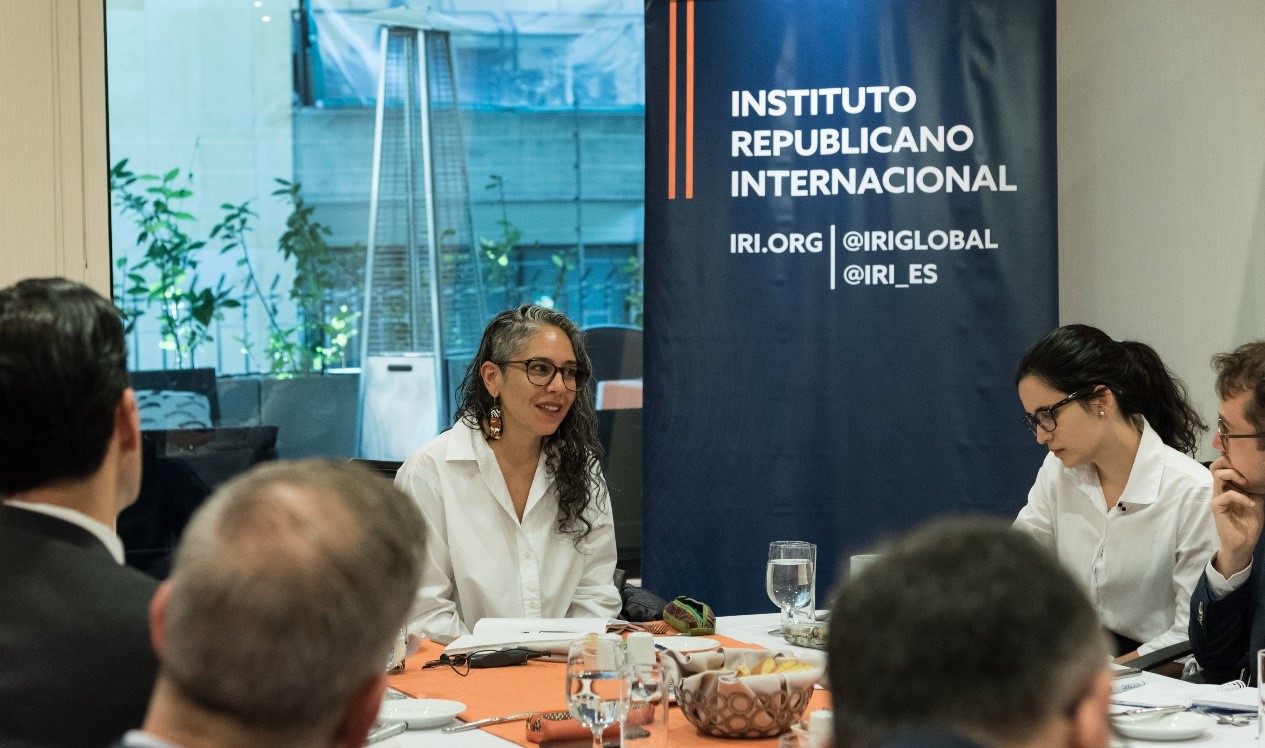Women Leaders are Key to a Strong Colombian Democracy

Colombian democracy has made remarkable strides in recent years – overcoming a legacy of tackling endemic corruption, domestic terrorism and poor governance. Yet numerous challenges remain, including building a democracy that is inclusive and truly representative. Despite electing a female vice president in 2018, women leaders in Colombia remain scarce. Recognizing that democracies can only reach their full potential when they represent all citizens, regardless of gender or other characteristics, the International Republican Institute (IRI) works with a range of partners across Colombia – including the Vice President’s office – to ensure that opportunities for women to participate in politics are expanded and women’s voices are amplified.
Women represent 50.9 percent of Colombia’s population yet are underrepresented in the political space, with women making up only 23 percent of Colombia’s Senate and 18 percent of the House of Representatives. At the subnational level, these numbers are even lower: Just two of the 32 governors and twelve percent of mayors are women.
When women are not involved in the decision-making process it is more difficult for their concerns to be addressed and democracy suffers. Working in collaboration with the office of Vice President Marta Lucía Ramírez, IRI brings women mayors and social leaders together to build gender-based policies that advance women’s rights and promote dialogue with the national government to identify common goals and develop responses to community needs. This includes spearheading the creation of women’s commissions within city councils and state assemblies to ensure state funds are properly allocated to programs that benefit women.
The role of women in Colombia’s peace process, 39 percent of which were displaced during the nation’s 50 year civil war, is critical. Women not only served as combatants and formed part of the negotiations, but are leading in the accord’s implementation. By working with congressional leaders like Juanita Goebertus, Maria Jose Pizarro and Adriana Matiz to advance the peace process and respond to migration challenges, IRI helps to ensure that women are not only included in the peace process – they are intrinsic to it.
This work advances long-term solutions by enhancing the capacity of local institutions to deal with governance challenges. By supporting the Peace Committee’s From the Capitol to the Territory (Del Capitolio al Territorio), IRI is helping build trust between congressional members and citizens in areas with limited state presence to assist in the effective implementation of the peace process.
By advancing women’s empowerment, strengthening governance capacities of stakeholders, promoting peace and security, IRI and our partners are contributing to a more democratic, peaceful and inclusive Colombia.
Top